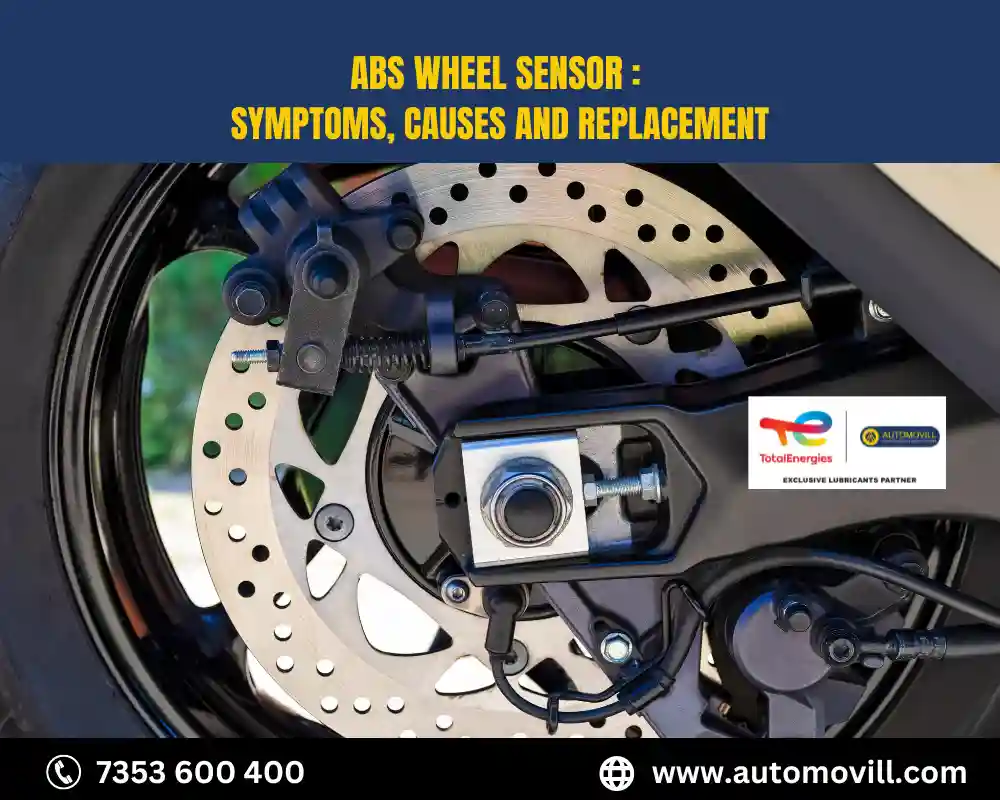
In the world of automobiles, safety takes the front seat. One vital component that ensures your safety on the road is the ABS (Anti-Lock Braking System) wheel sensor.
Let’s discuss the ABS wheel sensor replacement along with shedding light on the symptoms and causes of its failure.
Importance of ABS Wheel Sensor
Before we dive into the replacement process, let’s grasp the importance of the ABS wheel sensor. It is a small but important device that gives control to your wheels on the roads by preventing locking up while applying sudden brakes.
Why Need ABS Wheel Sensor Replacement?
The ABS light is glaring at you, and your brakes are acting all wonky. So, must replace your ABS wheels sensor for:
- Optimal Braking
- Road Safety
- Avoid Costly Repairs
- Regulatory Compliance
- Enhance Resale Value
- Comfort Driving Experience
Symptoms of a Faulty ABS Wheel Sensor
Detecting a faulty ABS wheel sensor early can save you from potential hazards. Keep an eye out for these warning signs:
- ABS Light Flash: A glaring ABS warning light on your dashboard is a clear indicator that something’s amiss.
- Strange Brake Behavior: If you notice unusual pulsating or vibrating sensations when applying the brakes, your ABS system might be struggling.
- Longer Braking Distances: Increased stopping distances, especially on slippery surfaces, could point to a malfunctioning ABS sensor.
- Inconsistent Traction Control: If your traction control system kicks in unnecessarily or fails to engage, the sensor might be the culprit.
- Unusual Noises: Clicking, grinding, or buzzing noises during braking could signal a sensor issue.
Causes of ABS Wheel Sensor Failure
Understanding what leads to ABS wheel sensor troubles can assist in preventing them:
- Dirt and Debris: Accumulated dirt or debris can obstruct the sensor’s functionality, causing inaccurate readings.
- Corrosion: Rust and corrosion can damage the sensor’s connections, disrupting its ability to transmit data effectively.
- Physical Damage: Impact from road debris or accidents can physically harm the sensor, rendering it dysfunctional.
- Electrical Issues: Wiring problems, such as frayed or damaged wires, can interfere with the sensor’s electrical signals.
- Age and Wear: Over time, sensors can deteriorate due to normal wear and tear, affecting their performance.
ABS Wheel Sensor Replacement Process
When faced with a faulty ABS wheel sensor, here’s the replacement process to expect:
- Diagnostic Scan: An automotive professional will use specialized tools to identify the problematic sensor and verify the issue.
- Lift and Wheel Removal: The vehicle will be lifted, and the respective wheel will be removed to access the sensor.
- Sensor Detachment: The old sensor will be detached from its mount, often secured by screws.
- New Sensor Installation: The new sensor will be carefully put in place and secured.
- Wheel Reinstallation: After ensuring everything is in order, the wheel will be reinstalled.
- Test Drive and Calibration: A test drive will be conducted to verify the sensor’s proper functioning. If needed, calibration will be performed.
Preventing Future Issues
Taking proactive measures can extend the life of your ABS wheel sensors:
- Regular Cleaning: You must keep your wheel sensors clean and free from debris.
- Rust Protection: Apply protective sprays to prevent corrosion on sensor connections.
- Safe Driving: Avoid rough driving, especially over potholes and obstacles.
Elevate Your Safety – Contact Us Today!
Your safety is our duty, and we ensure to keep your ride as safe as it should be.
Don’t let a faulty ABS sensor hijack your driving experience.
Contact us now for an ABS wheel sensor replacement that’s a cut above the rest.
Let’s steer towards safety, together!
